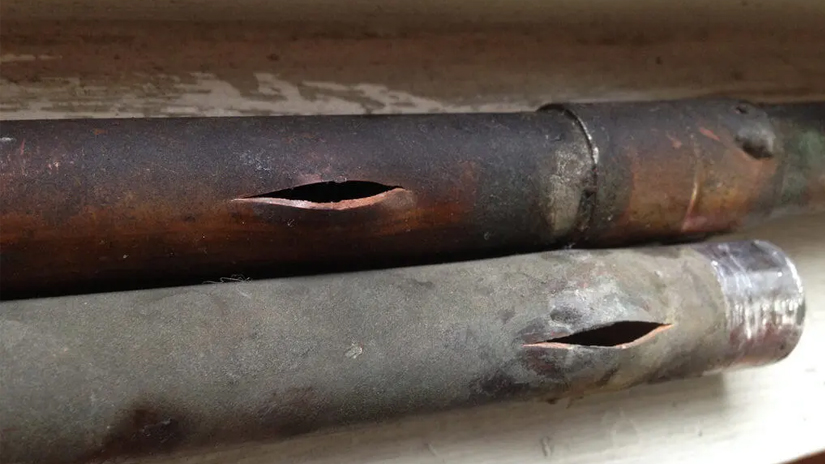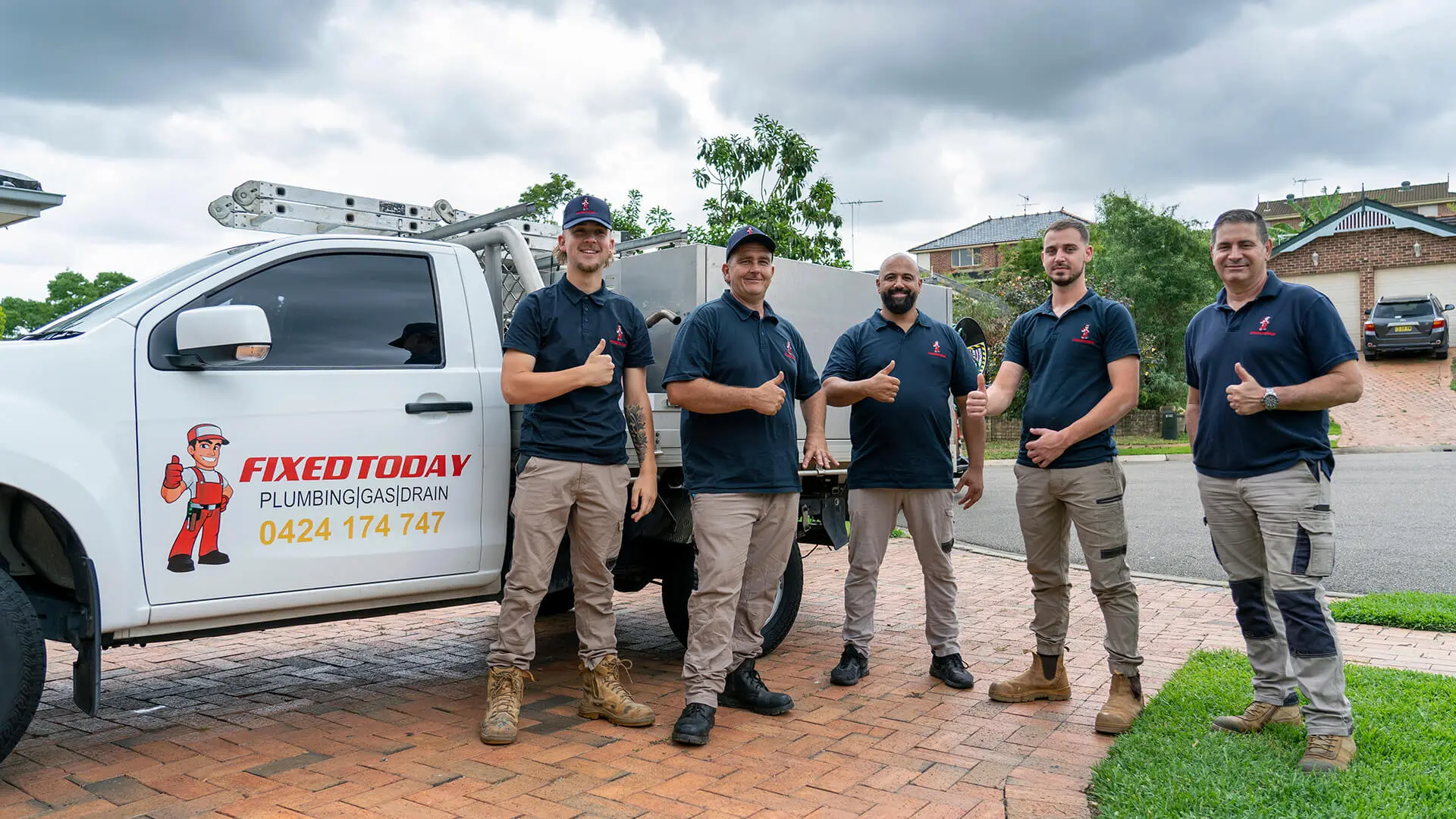When it comes to residential plumbing, things like blocked drains, broken pipes, and gas leaks are pretty common reasons people reach out to their local plumber.
While you’re waiting for the plumber, there are some things you can do to prevent the situation from getting worse. For example, knowing how to manage gas leaks from your appliances can save you from a disaster.
Ignored plumbing issues often lead to stubborn blockages or damaged pipes. Many Aussies tend to pay more attention to their cars than their homes until a plumbing emergency strikes.

The reason is that they love to take care of their cars and service them annually, whereas they ignore doing this for their plumbing systems.
Doing regular checks on your home’s plumbing can keep the fixtures, pipes, and drainage in top shape, preventing unexpected plumbing jobs or issues down the track.
You can catch early signs of trouble with regular maintenance, fixing issues before they snowball into emergencies.
When you encounter a plumbing emergency (except for a leaking gas—in this case, you need a local emergency plumber to fix it), you can take practical steps to diminish the damage.
What is considered a plumbing emergency? The most common plumbing emergencies, along with the dangers they carry, are the following:
1. Ruptured pipes
One of the most harmful plumbing emergencies is that the ruptured pipes may let out around 100 gallons of water in 8 hours.
Ruptured pipes can sometimes cause house erosion over the years. When a pipe ruptures, shut off the water supply immediately. Also, furniture or items should be removed to reduce damage.
Ignoring damaged pipes for a long time can bring havoc to your home. A burst pipe can cause poor water flow, twisted and tainted walls, an invading black cast, and signs of damaged pipes.
2. Bursting toilet
If your toilet’s flushing system gets blocked or fails, the first step is to turn off the water flow immediately.
The water tap is situated under the water line beside the toilet. Turn it entirely anti-clockwise. When the water flow in the toilet stops, the block or malfunction can be directed.
Loosening the toilet blockage is simple; you only have to apply sturdy plumb pressure using a plunger. However, a highly obstructed clog may need a gimlet to remove the waste, which stops the water’s flow; therefore, you may need a professional’s help in this scenario.
When the toilet is compressed with stopped water, the toilet may shatter, resulting in an explosion.
That is highly risky for the people living in the house.
3. Hot water heater breakdown
Waterheater issues include dripping tanks, too hot or cold water, smelly or odd-coloured water, and noisy water heaters.
When the water leaks, you must hire a professional for help. However, if it is not leaking, flush the tank to resolve smell and colour issues and enhance the heater’s efficiency.
When the temperature gets too high for the water heater, it may cause an explosion.
A hot water heater malfunction can cause notable damage, including damage to your house. Though water heaters have a lower tendency to explode, once they do, they can cause as much damage as a rocket.
It will create a hole in your ceiling, and the tank’s parts may end up anywhere in your neighbourhood, which is highly dangerous for everyone living near you.
4. Sump pit malfunction
When the sump pit stops working, remove the screen to ensure the waste is not blocking the wheel’s movements.
If the wheel is working but there’s still an issue, it could be that the pump isn’t getting enough power or there’s a problem with the float toggle.
If the sump pump runs for a more extended period, it might shut down because of an electricity overcharge.
Having a sump pit ensures that your basement never floods. There is a good chance that it will flood during a storm.
For instance, if you do not have a backup battery, a power outage may occur during a natural calamity, and if your sump pit is not working, it obviously won’t keep up.
5. Bathtubs and shower blockage
Nothing worse can happen while showering in the bathroom, and the water gradually rises above your ankles.
You may have a blockage when listening to a strange babbling noise from the drainage system.
The purpose of the blocked drain of the tub is to accumulate hair or soap suds.
The blockage in showers or bathtubs may result in hazardous situations.
Suppose, while taking a bath, your bathroom gets flooded with water, and you may slip and strike somewhere that may cause serious injuries.
6. Failures in the HVAC system
Do you have an idea that the HVAC system and plumbing operate together?
They work together with the help of a pipe, which moves the water droplets from the unit to the outer drainages.
However, when issues arise, they cause malfunctionsin some parts of the heating and cooling system. Among the most crucial problems is the HVAC system not being maintained correctly, which comprises replacing the infiltrations and covering the refrigerants.
Your home’s HVAC system has much to do than keep temperatures persistent.
It affects productivity, security, and power bills. Therefore, the homeowner may perceive inconsistent airflow or unequal heating or cooling.
Apart from that, the system may lose its efficiency as well.
7. Obstructed downspouts, roofs, and ducts
Ducts are used in every home and are a crucial part.
They provide security against fundamental problems by collecting water and directing it to another side from the base. Besides, when a duct collapses or is damaged, it stops the water and makes a pool.
Obstructed downspouts, roofs, or pipes cause water to build up in the bathroom, kitchen, bedrooms, and other house areas, drenching the furniture.
Water absorbs the bottom of the furniture and harms the electrical outlets.
The appliances in the house may also get affected because electrical outlets power them.
Even with minimal water damage, sweaty walls and roofs can act as breeding grounds for various moulds that cause illnesses, specifically asthma.
8. Leaking hoses on washing machines
The hose of a washing machine is not directly seen. Therefore, even a tiny rupture or break in the hose may cause leakage, and the slow stream of water may result in massive damage, including tarnish.
Leaking or burst hoses of washing machines lead to flooding in the house and give birth to significant damage.
They are also among the most severe causes of catastrophic house water damage.
9. Sewage system backups
The sewer system is one of the plumbing emergencies nobody ever wants to encounter.
Sewersystem backups are dirty, expensive, and troublesome. You’ll know it’s a sewer backup when you see drainage clogs, smell sewage odours, hear babbling toilets, and witness pooling water around the drainage system.
Sewage system backups are among the riskiest plumbing emergencies because they may harm home residents.
They can spread diseases and illnesses and even cause deaths. Sewage systems are filled with viruses, pollutants, and bacteria that are severe risks to individuals.
Additionally, they contain highly toxic materials; therefore, seeking help from a professional is required.
10. Not enough hot water
If the hot water system never turns hot or comes out too quickly, there is a problem. Of course, not having hot water is a severe issue in the winter season.
You won’t be able to bathe in a hot shower, clean and wash the clothes well, or sanitise and clean the dishes.
These hot water problems must be addressed by maintaining or changing the water heater.
The thing you need is just a warm-up, or else you can take advantage of the new unit.
11. Sweating walls
Sweating walls in Sydney happen when the water within the pipe gets much colder than the surrounding humidity.
The air is hot throughout the summer, and in winter, the air gets warm by the boiler.
In both cases, if humid and hot air reaches the cool pipes, droplets of moisture occur, and sweat forms as if there were a small pit in the pipe.
The sweating walls of your home absorb the heat from the outside temperature, mainly in the summer season, making it even warmer than the air conditions.
When the air meets the sweating walls, their moisture will liquefy, and the walls will start to sweat, drip, and create a puddle.
Your home’s carpets and flooring soak up the puddle, which causes a musty smell and mould.
12. Poor water pressure
The most annoying thing happens in the morning when you shower and the water pressure is extremely poor.
This is not something you have to compromise on, specifically when it is one of the signs of a huge issue.
Poor pressure in water is a result of various distinct problems. For instance:
- Expansion on installations: If you have hard water, the dregs can increase on the spiles of the plumbing installations and prevent water from flowing out of the shower.
- Blockages: If your pipes are blocked by debris, water will not run efficiently in them, resulting in lower water pressure. Numerous things, such as H2O or rusted pipes, may also cause this.
- The closed water valve: If the water meter’s valve or the main water line is not opened completely, you can experience insufficient water pressure.
- Pressure relief valve: If the pressure relief valve fails to function, you may experience poor water pressure, which is exceptionally high and damages the plumbing system.
Need a Plumbing Service?
Things to do during a plumbing emergency
If you fail to act rapidly in extreme plumbing emergencies, they may give rise to repairs and add to your list of plumbing needs.
When you own a house, you are very likely to need the services of a plumber when the time comes.
What will you do in the most crucial emergencies?
The succeeding tricks help manage the emergency and stop further harm to your house.
- Contact the water department: Do not presume that the person responsible for the repair is you, so ignore calling the water department. If there is an issue with your main pipe, a clogged sewer, or the main water pipe, the water department may also send a professional plumber to fix the problem immediately.
- Contact a professional plumber: Contact a local Sydney plumber who provides 24-hour service and an emergency facility. Remember to provide complete information regarding the issues, what attachments are impacted, and what steps you have taken to fix, block, and resolve the issue.
It does not matter if you are skilled; you will not manage when a vast emergency plumbing arises.
You can fix a water leakage today; however, other problems may appear soon.
Expert and skilled plumbers are trained to handle and control numerous faults in plumbing emergencies. Thus, an emergency plumber scans the situation to assess the problem and identify the leading cause.
Additionally, an emergency plumber owns the latest emergency plumbing equipment; it is simpler to solve complex issues.
Hence, a reliable emergency plumber has long-lasting answers to your plumbing problem, saving you precious time and valuable money.
There are many causes of plumbing emergencies, and you may need an emergency plumber; however, minor maintenance for your plumbing system can help you prevent damages from these issues.
But there comes a time when you need help from a professional and licensed plumber (Sydney emergency plumber). Reaching out to Sydney emergency plumbers is inevitable. Call an emergency plumber from a reliable plumbing company to get the best and most guaranteed solutions and reliable plumbing service for all your plumbing-related problems.















